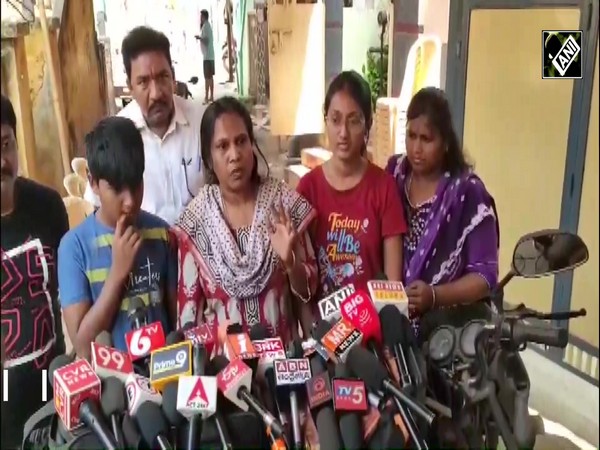
"Don't believe propaganda, we have ample food stocks,": Minister Pralhad Joshi dismisses food shortage rumour
May 09, 2025
New Delhi [India], May 9 : Union Consumer Affairs and Food Minister Pralhad Joshi on Friday dismissed rumours of a food grain shortage in the country, saying that India has adequate food grain stocks, far exceeding the required norms. Minister Joshi urged people not to believe misleading propaganda about the food supply.
Minister Joshi also warned against hoarding or stockpiling food items, stating that anyone found engaging in such practices will face prosecution under the relevant sections of the Essential Commodities Act.
In a post on X, Minister Joshi emphasised, "Don't believe in propaganda messages regarding food stocks in the country. We have ample food stocks, far exceeding required norms. DON'T PAY HEED TO SUCH MESSAGES. Traders, wholesalers, retailers or business entities which engage in trading of Essential Commodities are directed to cooperate with Law Enforcement agencies. Any person indulging in hoarding or stockpiling shall be prosecuted under relevant sections of the Essential Commodities Act."
Earlier in the day, Union Minister of Food Processing Industries Chirag Paswan held a review meeting with senior officials from the Ministry to discuss the availability of food items in the country.
The meeting comes amid mounting tension between India and Pakistan and rumours of food grain shortage in the country.
Tensions between India and Pakistan escalated after the Indian Armed Forces launched Operation Sindoor in the early hours of Wednesday (May 7th), targeting terrorist infrastructure in Pakistan and Pakistan-occupied Jammu and Kashmir (PoK). This operation was a retaliatory response to the April 22 terror attack in Pahalgam, Jammu and Kashmir, which resulted in the deaths of 26 civilians, including one Nepali national.
Hours after India conducted a series of strikes on terrorist sites in Pakistan and Pakistan-occupied Kashmir (PoK), Foreign Secretary Vikram Misri, Colonel Sofiya Qureshi, and Wing Commander Vyomika Singh held a media briefing in the national capital to share details of the operation.
Wing Commander Vyomika Singh, who briefed the media alongside Foreign Secretary Vikram Misri and Colonel Sofiya Qureshi, stated that 'Operation Sindoor' was launched to deliver justice to the victims of the Pahalgam terror attack and their families.
Wing Commander Singh reported that a total of nine terror sites were targeted and successfully destroyed. Wing Commander further emphasised that the locations were chosen to ensure there was no damage to civilians or their infrastructure.
"Operation Sindoor was launched by the Indian Armed Forces to deliver justice to the victims of the Pahalgam terror attack and their families. Nine terrorist camps were targeted and successfully destroyed... The locations were so selected to avoid damage to civilian infrastructures and loss of any civilian lives," Wing Commander Singh said.
Col Sofiya Qureshi presented videos of the destruction of terror camps, including those from Muridke, where David Headley and Ajmal Kasab, perpetrators of the 2008 Mumbai attacks, received training. Other than Muridke, the Sarjal camp in Sialkot, Markaz Ahle Hadith, Barnala, and Markaz Abbas, Kotli, and the Mehmoona Joya camp in Sialkot were targeted in the strikes conducted by the Indian Army, Col Qureshi further informed.
Meanwhile, Foreign Secretary Vikram Misri briefed that the attack on Pahalgam was driven by an objective of undermining the return of normalcy in Jammu and Kashmir.
"The attack in Pahalgam was marked with extreme barbarity, with the victims mostly killed with head shots at close range and in front of their family...the family members were deliberately traumatised through the manner of killing, accompanied by the exhortation that they should take back the message. The attack was clearly driven by the objective of undermining normalcy returning to Kashmir," Misri said.
India has carried out its deepest strikes inside Pakistan's undisputed territory since 1971, successfully targeting terror camps in Pakistan and Pakistan-occupied Jammu and Kashmir. This marks New Delhi's most significant military action within Pakistani territory in over five decades.





















